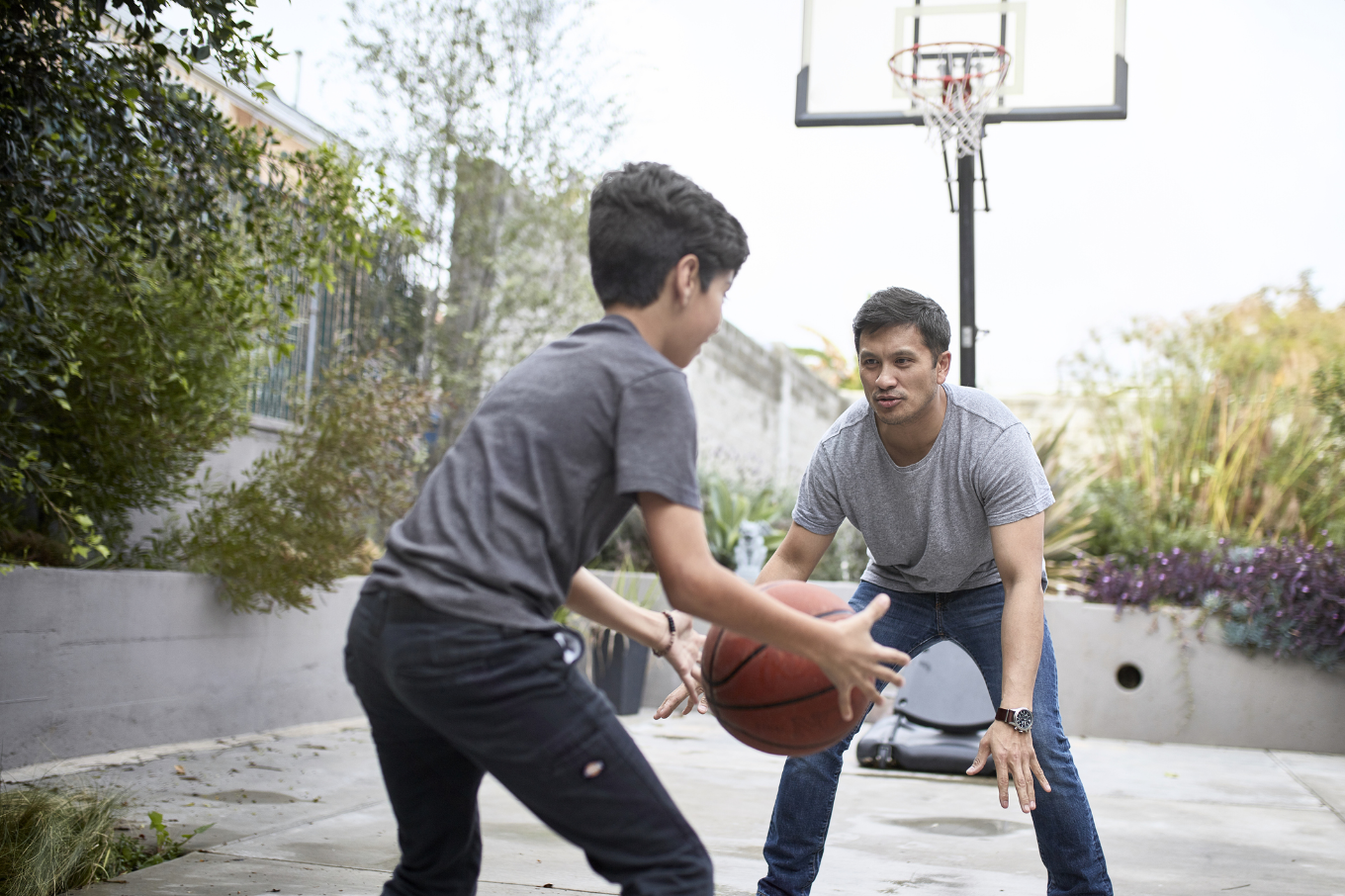
In this article
Puberty for boys and girls manifests itself in very different ways. Girls begin to develop breasts and start their period, while boys start making testosterone and their testicles grow. Even though they’re going through similar changes at about the same time, we tend to talk to them in very different ways.
When girls begin puberty, it’s out there for everyone to see. When they start to develop breasts, parents can see what’s happening. When their period begins, in general, they need their parents’ help to get supplies, and that can lead to a talk about how their body is changing and what it means when they start to develop.
But, with boys, they’re developing differently (and much of it happens in their pants, where you can’t see it). By the time parents start to notice that their son’s voice is changing and he’s growing more hair, puberty has already been happening for a while. Plus, boys tend to get quieter around this time, said Dr. Cara Natterson, pediatrician and author of Decoding Boys: New Science Behind the Subtle Art of Raising Sons.
Dr. Natterson said she wrote Decoding Boys to encourage parents to talk to boys in the same way they talk to girls because the experience is more universal than parents may recognize.
“The experience overall with transformation and the not knowing where your body is going or in what order or where it’s going to land or feel, that’s really a human experience and it’s not gender at all, frankly,” Dr. Natterson told Mom.com.
How to talk to your boys and girls about puberty?

According to Natterson, every parent and child will manage it a little differently, depending on the relationship that exists. Some kids will be more open to talking and others won’t want to talk much at all.
“There’s no one right path through conversations. The good news is that you have so many opportunities to try it so many different ways,” Dr. Natterson said.
In general, parents seem to do a little bit better job with their daughters, she pointed out. Parents will jump in and engage them in conversation. When a girl goes in a room and closes the door, parents are more likely to knock and go in. But boys tend to get quiet when they go into puberty and withdraw.
“Instead of just accepting it as a stage of puberty and saying that’s what boys do and allowing them to stay behind those closed doors not talking to us, I think parents should do with their boys what they do with girls,” she said.
Knock on the door, go into their room, and engage them in conversations about what’s happening to their bodies. If it doesn’t go great the first time, try again, Dr. Natterson suggested.
Body image in boys and girls

One area that parents might not think that boy and girl puberty is similar is when it comes to body image. It’s not just girls who are having conversations about what their bodies look like.
“The thing that always gets the mosts gasps when I speak is the conversation about boys’ body image,” Dr. Natterson said. “There are body ideals for boys just like there are body ideals for girls.”
Dr. Natterson cautioned that, as with the images girls are seeing, these ideals are generally not attainable. If you’re a boy in puberty and you’re looking online of what the ideal man is supposed to look like, he’s a tall, handsome man with six-pack abs and broad shoulders. As a society, we’ve been good about talking to girls about how the runway model aesthetic isn’t realistic, and to love your body, but we haven’t really done that with boys in the same way.
“By not doing that, we’re not really acknowledging how they feel,” she said.
What age should you talk to your child about puberty?

A good time to start talking about puberty is between 9 and 12 years old, according to Planned Parenthood. “As your child goes through puberty, emphasize that all bodies develop differently and at their own pace.”
Mom Sherri Kuhn recommended being straightforward when talking to kids about what’s happening to their bodies.
“One of my biggest challenges was to mix honesty with facts. I didn’t want my daughter to think becoming a woman was all rainbows and lattes,” Kuhn said in an article for Mom.com. “Let’s face it, periods are kinda gross. I will never forget the moment my daughter realized that at my age I was still having periods. It was like her whole life flashed before her eyes. Why sugarcoat reality, right? Still, I felt kind of bad for her,” she wrote.




